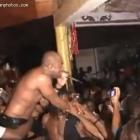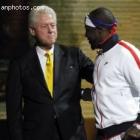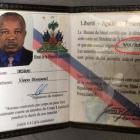ADVERTISEMENT
US Occupation
Jean-Bertrand Aristide Returned With US Military
Here is a picture of the US force that accompanied Jean-Bertrand Aristide in Haiti after his first exile to the United States. He is accused for allowing Foreign troops to come to haiti. In the past, Jean-Bertrand was very vocal against foreign countries into Haiti.
He became a leading figure in the Ti Legliz movement when he was a Catholic priest
U.S. Marines in Fort Liberte in 1916
Here is a picture of United States Marines during the occupation of Haiti in 1916. This picture was taken during a hunting operation of Caco.
The United States occupation of Haiti started July 28, 1915 during the government of U.S. President Woodrow Wilson and ended on August 1, 1934 during the government of Franklin D. Roosevelt
German Threat Reason for U.S. Occupation in Haiti
The 1915 U.S. Occupation of Haiti started when militias, known as cacos, staged turf wars to seize power on the island. German immigrants had funded the cacos and now urged Germany to come and establish peace.
Germany threatened U.S. interests. In the summer of 1915, U.S. Occupation forces arrived and stayed until 1934.
U.S. improved Haiti's infrastructure, but Haitians resented the Occupation. Finally the Great Depression forced U.S. citizens to demand its government leave to save money.
Cacoists and Germany Force U.S. Occupation
Haiti was failing as a country in 1915. Cacoists' militias were waging war in the streets, financed by German immigrants. News Germany might invade the island reached the U.S., and to prevent that, American warships invaded first, stopping anti-American cacoist leader, Rosalvo Bobo.
Until 1934 the U.S. ran the island with Haitian figurehead rulers. Haitians grew to resent the Occupation; they wanted Bobo in power.
Eventually due to the Great Depression in America, U.S. troops withdrew.
Benedict Batraville Opposes U.S. Marine Invasion
Benoit Batraville was a Haitian army commander who was thought a puppet military leader the U.S. Marines could control. Because of his intellect and former ties to murdered insurgent leader Charlemagne Peralte, Congress appointed him commander thinking he would help them extend their territory during the U.S. Occupation.
But Batraville was secretly an insurgent leader and foiled the Marines attempt to occupy more of Haiti. They finally located Batraville on the Central Plateau and assassinated him in 1920.
U.S. Occupation Began to Stop Rosalvo Bobo
Haiti, in 1915, was on the brink of failure. Several anarchist groups, called cacos, were fighting to gain control of the island. German immigrants had funded the cacos, and in desperation implored Germany to come and stabilize the situation.
President Wilson, alarmed anti-American Rosalvo Bobo might rule, ordered U.S. warships to occupy Haiti.
From 1915-1934 the U.S. ran Haiti with straw-man governments. Only when the Great Depression occurred did the U.S. leave. It could no longer afford the Occupation.
Anjeliko, Anjeliko, ale kay manman ou, Song made famous during US Occupation of Haiti
This song that is still popular today in Haiti, Anjeliko, Anjeliko, ale kay manman ou, became famous during US Occupation of Haiti of 1915.
Haitians Resentment of 19-Year U.S. Occupation
Although Haiti won independence in 1804, by 1908 the island had collapsed under dire economic and political influences. Out of control military factions battled for power.
In 1915, the U.S. Occupation brought stability to Haiti. Initially Haitians accepted it, but grew resentful of America's absolute control in time.
When America's Great Depression hit, they could no longer afford the Occupation and left in 1934. A few American diplomats remained to protect U.S. investments
Why Do Haitians made baseball but never played it?
Very interesting question. Back in the 1960′s or 1970′s most baseballs used in the American National league were made in Haiti. You would think that many Haitians would be baseball players, playing in Major League Baseball.
That is not the case. In the meantime, on the other side of the island, the Dominican Republic, many are making a fortune playing the game.
According to history, it has everything to do with the American occupation of 1915. Unlike American invasions in other countries that were relatively brief, the Haitian occupation lasted 19 years and was brutal. The Haitians were not interested in anything that was American at the time and instead played soccer.
Charlemagne Peralte remains
Here is the Place where Charlemagne Péralte remains have been rested since the end of the US occupation in 1935. Although he couldn't receive a proper funeral during the occupation, a national funeral was accorded to him later.
The official funeral of the Haitian hero, the leader of the Caco rebel fighter, Charlemagne Péralte, was held in Cap-Haitian and attended by the President of Haiti, Sténio Vincent
Charlemagne Peralte betrayed by Jean-Baptiste Conze
Here is a picture of Jean-Baptiste Conze, the Haitian rebel fighter who betrayed Charlemagne Peralte.
By that time, Charlemagne Péralte had already declared a provisional government in the north of Haiti.
Charlemagne Péralte was betrayed by one of his Caco fighters, Jean-Baptiste Conzé. This opportunist, led US Marines Sergeant Herman H. Hanneken and Corporal William Button into the Caco rebels camp which was located at the time near Grand-Rivière Du Nord
A name that has became famous in Haiti in its own right, Jean-Baptiste Conzé "Conzé"

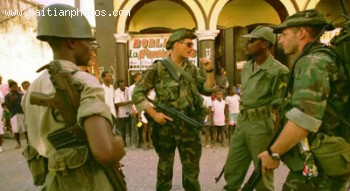
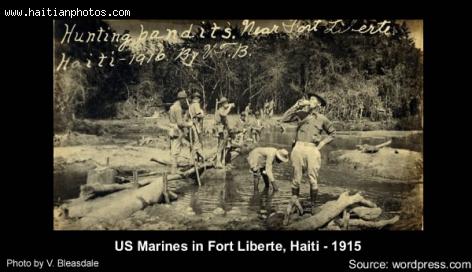
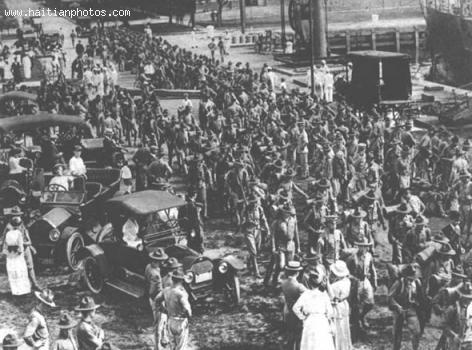
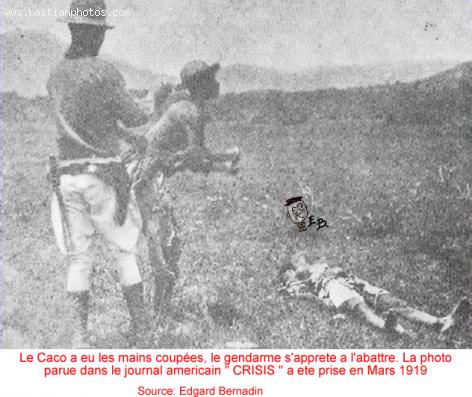

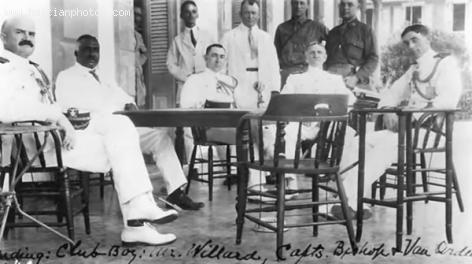
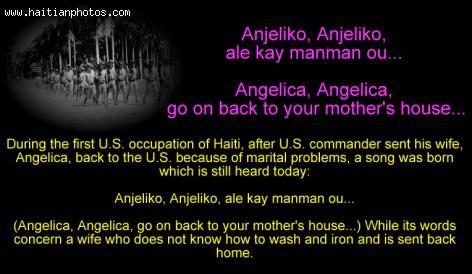
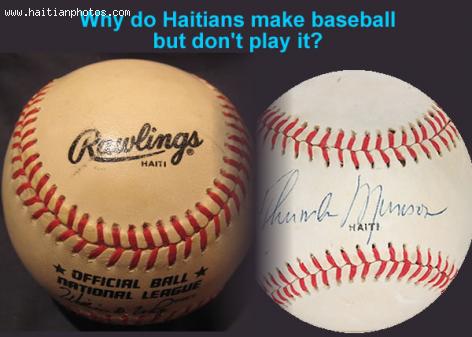
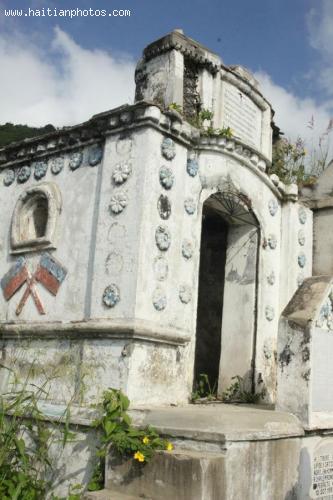
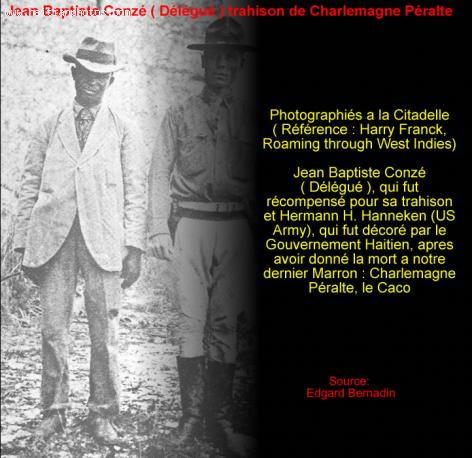
 Children of Haitian descent handcuffed, deported from the Bahamas
Children of Haitian descent handcuffed, deported from the Bahamas 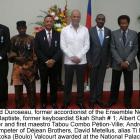 Five personalities of the Haitian musical world awarded
Five personalities of the Haitian musical world awarded 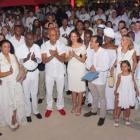 All inclusive Royal Decameron Indigo
All inclusive Royal Decameron Indigo  Port-au-Prince on fire over gas prices hike
Port-au-Prince on fire over gas prices hike 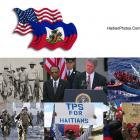 Haitians, the second largest black immigrant group in the US
Haitians, the second largest black immigrant group in the US 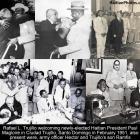 Rafael L. Trujillo welcoming Paul Magloire in Santo Domingo
Rafael L. Trujillo welcoming Paul Magloire in Santo Domingo  Jean Henry Céant deposited documents in Parliament for...
Jean Henry Céant deposited documents in Parliament for...  Commissioner Frantz Pierre indicted for accepting bribes
Commissioner Frantz Pierre indicted for accepting bribes 